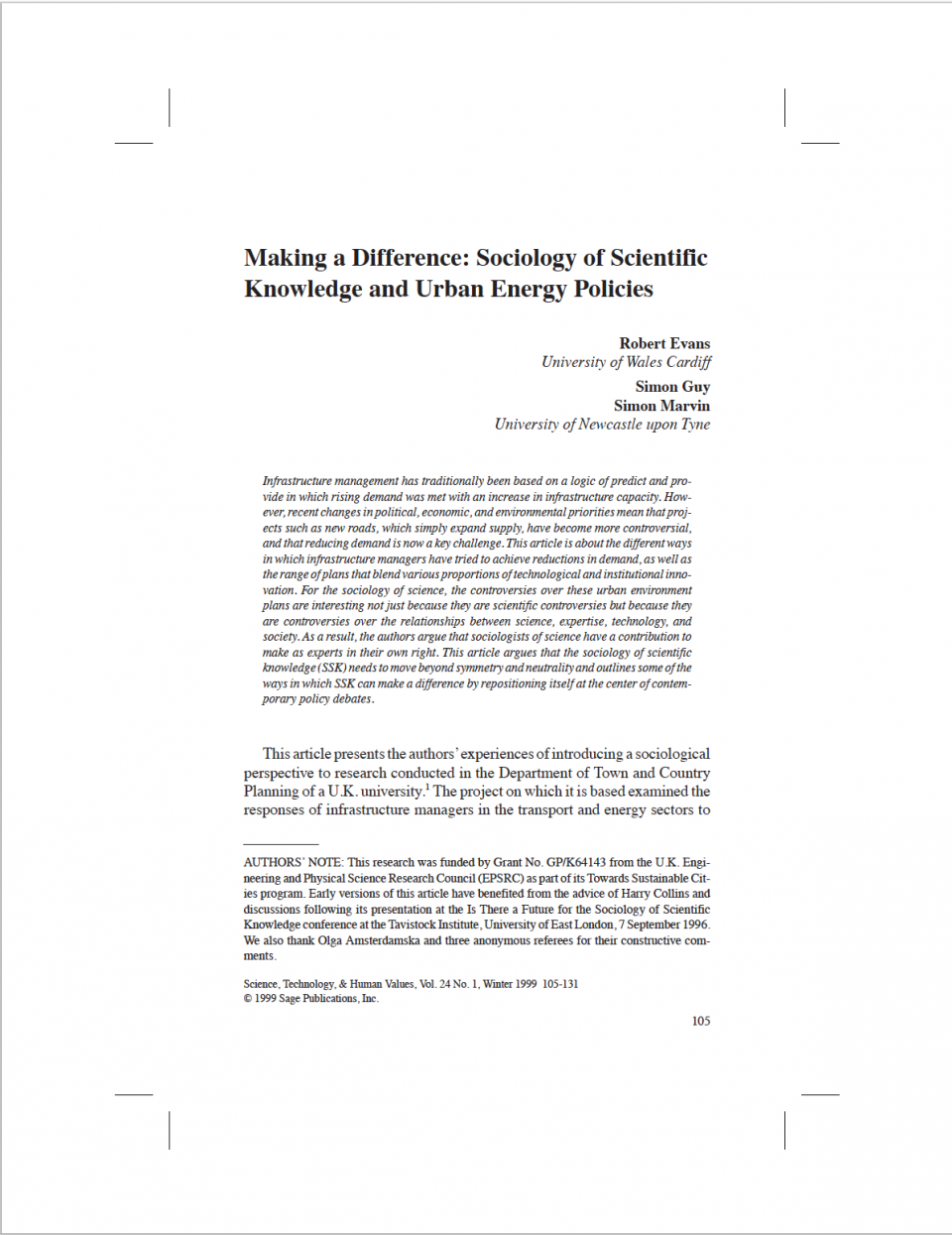ARTICLE ABSTRACT: Infrastructure management has traditionally been based on a logic of predict and provide in which rising demand was met with an increase in infrastructure capacity. However, recent changes in political, economic, and environmental priorities mean that projects such as new roads, which simply expand supply, have become more controversial, and that reducing demand is now a key challenge. This article is about the different ways in which infrastructure managers have tried to achieve reductions in demand, as well as the range of plans that blend various proportions of technological and institutional innovation. For the sociology of science, the controversies over these urban environment plans are interesting not just because they are scientific controversies but because they are controversies over the relationships between science, expertise, technology, and society. As a result, the authors argue that sociologists of science have a contribution to make as experts in their own right. This article argues that the sociology of scientific knowledge (SSK) needs to move beyond symmetry and neutrality and outlines some of the ways in which SSK can make a difference by repositioning itself at the center of contemporary policy debates.

Robert Evans, Simon Guy and Simon Marvin, "1999. Evans et. al. "Making a Difference: Sociology of Scientific Knowledge and Urban Energy Policies"", contributed by James Adams, STS Infrastructures, Platform for Experimental Collaborative Ethnography, last modified 7 June 2018, accessed 4 April 2025. https://stsinfrastructures.org/content/1999-evans-et-al-making-difference-sociology-scientific-knowledge-and-urban-energy-policies
Critical Commentary
In this 1993 article, Evans et. al discuss the stategies and practices through which infrastructure management experts have tried to reduce demand for infrastructure development. They then assess the implications of public controversies around infrastructure for discerning the proper role and positioning of SSK scholars in regard to contemporary policy debates.